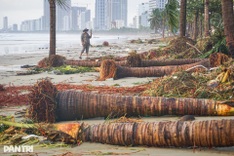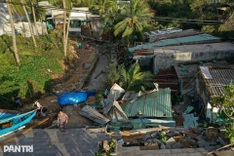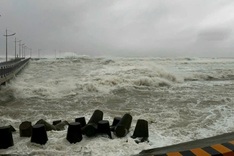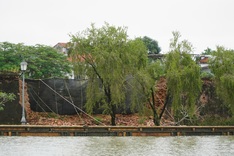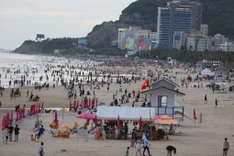Economic growth and inflation would become topics of focus during the upcoming session of the National Assembly on May 20, said PhD. Tran Van, who was previously Head of the Office of the Party Central Economic Committee. He is now a National Assembly deputy of Ca Mau Province and a Standing member of the National Assembly's Committee for Finance and Budget.
 |
| How to maintain harmony between growth and inflation is always a puzzle |
Could you please tell us more details about major concerns among voters and economic growth issues, which will be discussed in the upcoming session?
Attending the seventh session of the National Assembly, assembly members will bring with them a lot of the pressing issues along with representing the opinions from all voters to the Party, National Assembly and Government. Through recent meetings with voters, we found that people across the country were worried about continuous increases in price of agricultural materials, petrol, electricity and water, whereas agricultural product prices did not go up accordingly.
In addition to threats of natural disasters and epidemic diseases, Vietnamese farmers are coping with double the burdens. Price increase has become one of their major concerns, especially in rural areas, where farmers play an important role in macro-stabilisation, but they have to deal with price differences between agricultural and industrial service products.
Economic growth will also be a very pressing topic because the National Assembly’s deputies always assess and analyse growth in terms of sustainable development. This means growth always has to go along with effectively resolving social issues and environmental protection. In fact, these two objectives encounter many obstacles.
For example, there were the heavy amount of fish deaths on Tra Khuc River because of Quang Ngai Sugar Factory releasing their untreated wastewater into the river; Tung Kuang Company polluted the water environment in Hai Duong Province; safety issues during flood seasons; drought during dry seasons; intensive deforestation at upper sources of rivers for constructing many hydropower plants in the central and central Highlands areas; epidemics, diseases and more.
If we cannot maintain sustainable development, cannot cope with economic, social and environment issues with an aim of ensuring peoples quality of life, then growth will lose its significant role.
 |
| PhD. Tran Van |
During the sixth session of the National Assembly in October 2009, the Assembly recommended prioritising economic growth’s quality, but Government aimed at rapid growth rate. However, over one month later, the Government had to change their policies. What do you comment about this move?
These two issues were discussed very thoroughly during the year-end session of the National Assembly.
I still remember, regarding socio-economic development for 2010, initial reports of the Government pointed out overall goals that we would focus on achieving higher growth rates than in 2009. The second priority was to improve growth quality, to strengthen macro-economic stability, to prevent high inflation reoccurring and to ensure public security.
However, many deputies thought that although the economic growth rate in 2009 was 5.32%, our macro balance was not solid enough. Thus, we should set economic quality improvement, macro-economic stabilisation and prevention of high inflation reoccurring as our first priorities, instead of growth pace.
There were 337 out of 360 deputies that agreed with the content and prioritisation orders of the drafted resolution: “Making efforts to achieve higher growth rate than in 2009, enhance macro-economic stability and improve growth quality.”
The fact had proved their predictions, which became a key role in making proper policies and solutions.
After macro-economic stabilisation was prioritised for about 5 months, in mid April 2010, the Government seemed to concentrate on speeding up growth rates by loosening monetary policies. Do you think it is the right moment for growth pace?
I do not think the government is “loosening” monetary policies by cutting down lending interest rates according to Resolution No. 23 issued by the Government on May 7, 2010. This creates more favourable conditions for enterprises and individuals to access credit sources for their manufacturing and export development.
The Government is still determined with their duties and objectives which were approved by the National Assembly.
Many opinions said that it’s not difficult to achieve a Gross Domestic Product (GDP) growth rate of 6.5% but it’s more difficult to reach a Consumer Price Index (CPI) growth below 7%. Indeed, the resolution of the regular session in April of the government said that they would try to control CPI at 8%. What is your opinion?
The economy in the first four months of the year has been very promising. From that fact, we can come up with predictions on obtaining economic growth rates of 6.5% this year.
The Government can foresee the possibility of high inflation reoccurring and they decided to initiate appropriate responses such as issuing Resolution No. 18. Thus, CPI growth started slowing down in April. However, it went up 9.23% compared with last April which caused challenges in controlling yearly inflation at 7%.
I believed it required a lot effort and determination from the entire political system, enterprise community and the people in order to curb CPI growth at 7-8%.
I am confident with the supervision ability of the National Assembly, operation of the Government and CPI growth of this year will not exceed one digit with an aim of making socio-economic growth significant to all Vietnamese people.

